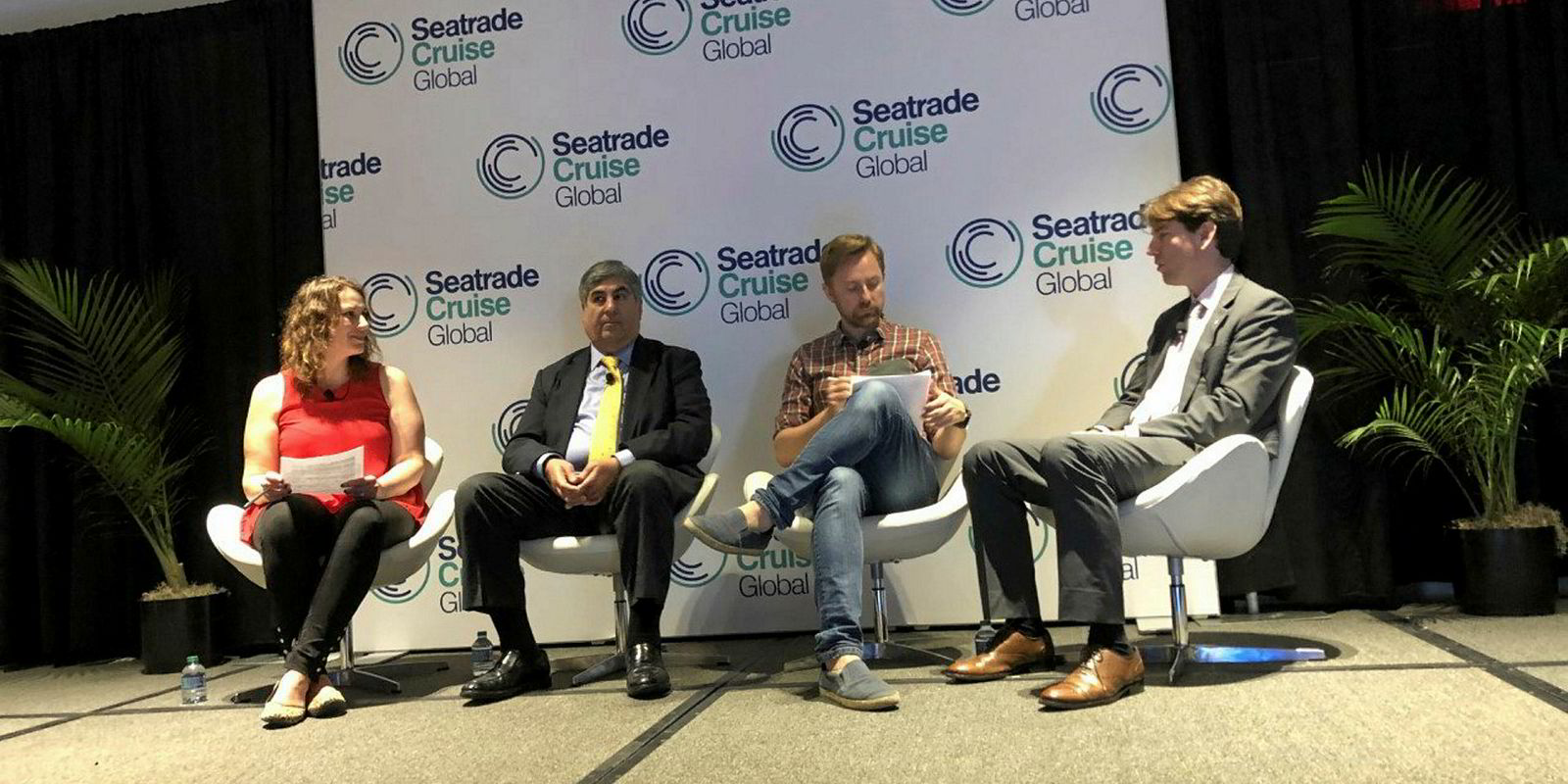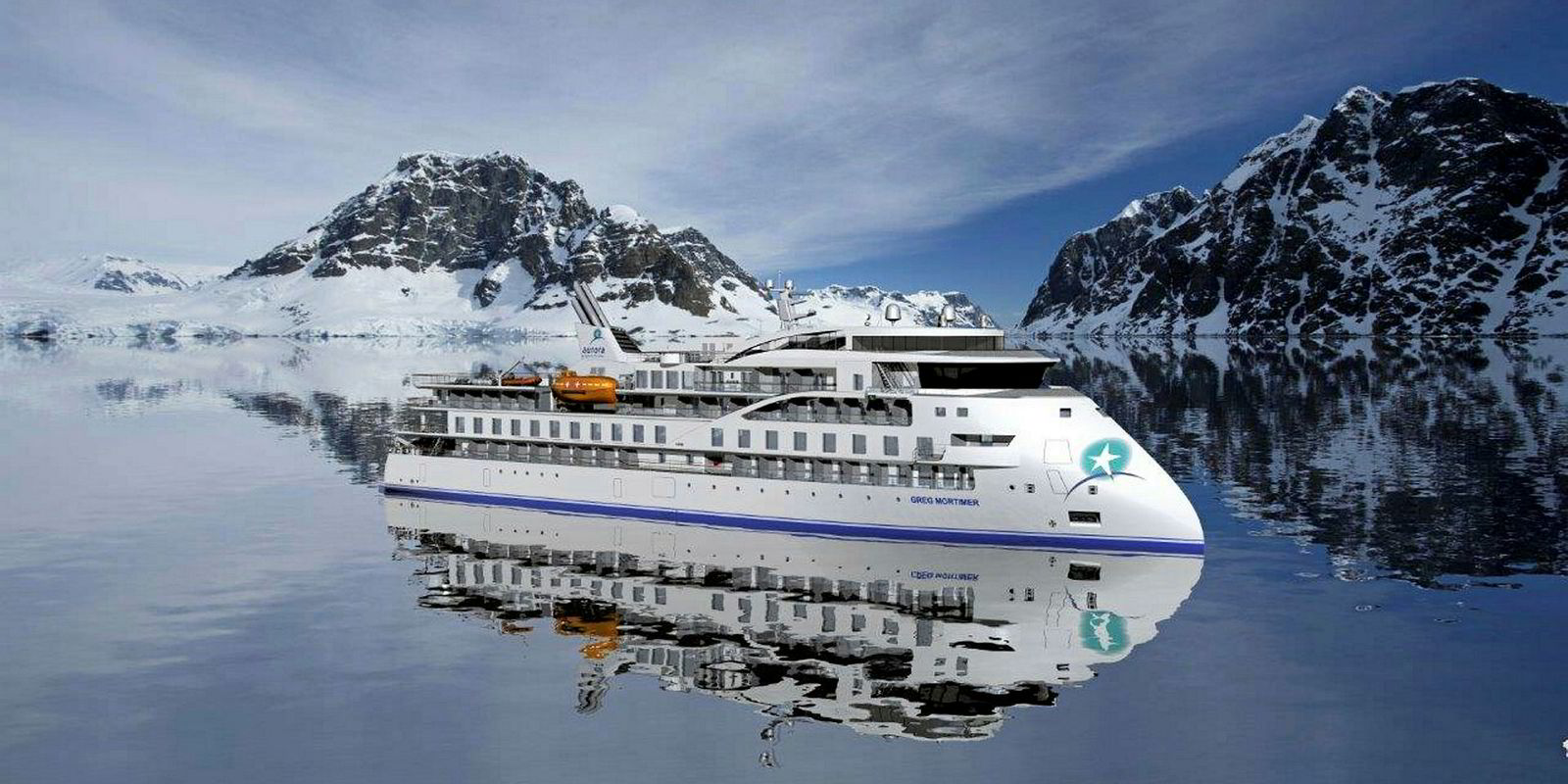The growing expedition cruise sector not only need to keep a careful eye on its bottom line, according to executives.
The burgeoning industry must also pay close attention to preserving the natural environments to which it sends thousands of passengers every year, they say.
"We have to be very conscious when we sail into some of these environments that are very fragile ... around the world," Ponant Americas chief executive Navin Sawhney said today during a panel at Seatrade Cruise Global 2019 in Miami Beach.
"We have to be highly conscious of how many people we land at any given time."
He said any area in the world — not just the Arctic — can be disrupted with an influx of hundreds of expedition cruise passengers.
"You can change that entire village," he said.
"You have to build a relationship with those local communities so you can preserve the culture for the future."
Hurtigruten offers expedition cruises that give passengers the opportunity to remove plastic waste from beaches, said Rune Thomas Ege, vice president of sustainability and public affairs.
"From time to time, we take our guests beach cleaning," he said.
"The next day, people from all over the world ask us, when are you doing your next beach cleaning?"
Fuel choice is also very important in protecting Mother Nature, he said.
"Right now, we're advocating a ban on heavy fuel oil on ships ... not only in the Arctic but wherever we are sending ships," he said.
IMO plans to impose a full ban on heavy fuel oil in the Arctic by 2023. The agency has prohibited its use in the Antarctic since 2011.
Perhaps expedition cruise companies should ask these communities if they are welcome in the first place, Expedition Voyage Consultants chief executive Ben Lyons said.
"We ask, do you want the ship to come, even before announcing the trip?" he said.





